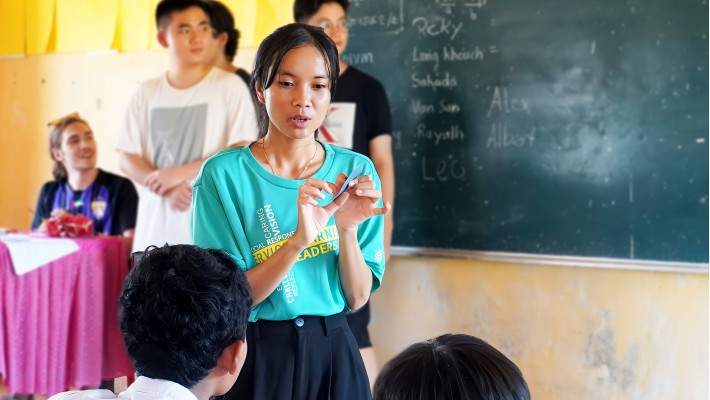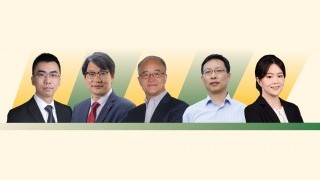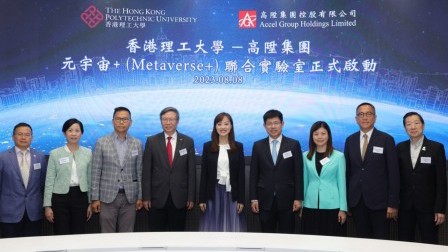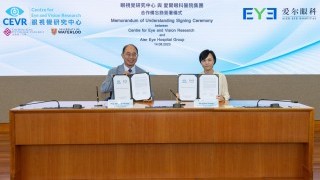Igniting social responsibility through Service-Learning
PolyU places a strong emphasis on providing a holistic education in order to nurture civically engaged global talents for Hong Kong and beyond. To this end, we are the first university in Hong Kong to make Service-Learning (SL) a graduation requirement for all undergraduate students, with aspirations to become a centre of SL excellence in Asia.
Since their launch in 2012/13, our SL programmes have been well-recognised in professional and international communities. This year, we celebrate the 11th anniversary of the programme and its positive impact on society.

Cambodian students in the STEM workshops organised by PolyU students.
We offer over 70 SL subjects taught by more than 30 academic units, educating students about social issues and enabling them to apply their classroom knowledge to serve the community.
Since 2012, our SL initiative has enrolled more than 37,900 students, contributing over 1.51 million hours of service to communitie s in Hong Kong, Mainland China and Taiwan, as well as other places such as Cambodia, India, Indonesia, Japan, Kazakhstan, Kyrgyzstan, Myanmar, Philippines, Rwanda, South Africa, Thailand and Vietnam.
Making an impact beyond the classroom
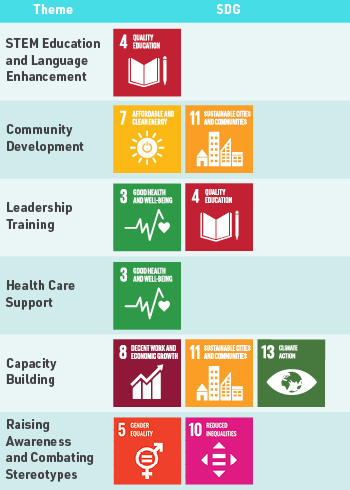
The United Nations (UN) Sustainable Development Goals (SDGs) are a collection of 17 interlinked objectives adopted by the UN General Assembly in their 2030 Agenda with a target of creating a better life for humankind. As a member of the global community, the PolyU SL programme nurtures students into socially responsible global citizens. It guides them in applying their knowledge and skills towards addressing these SDGs. Some SDGs currently being addressed by our programme are shown at right:
Powering up Rwandan villages via rural electrification
A shining example is the accomplishments of our students and teachers in Rwanda this summer. PolyU sent a team of over 100 members, comprising of PolyU students and teachers, visiting students and teachers from the University Social Responsibility Network, and secondary students and teachers from Hong Kong, on a two-week SL programme, “Habitat Green in East Africa”. They designed and developed green energy solutions for 400 families in seven remote villages in Rwanda.
Ambassador-designate of the People’s Republic of China to the Republic of Rwanda Mr Wang Xuekun highly praised PolyU's Service-Learning programme. He said that the project enabled students to apply what they had learned in bringing electricity to impoverished families in Rwanda. In building bonds between peoples, the SL programme demonstrated the spirit of Belt and Road.
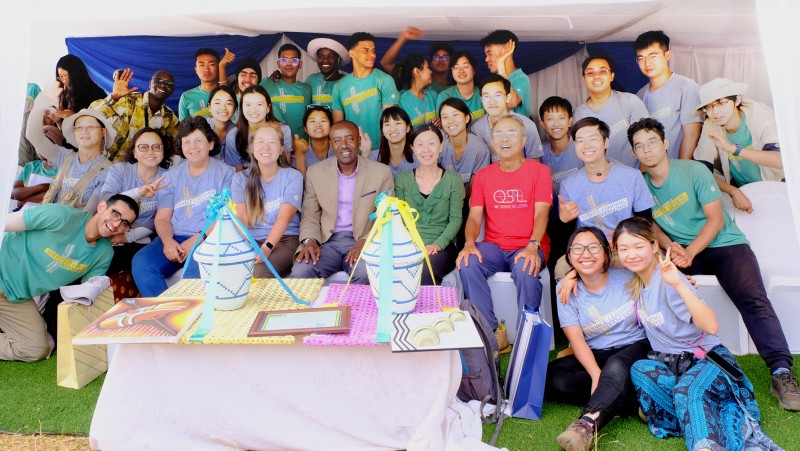
Dr Grace Ngai, Head of PolyU's Service-Learning and Leadership Office (front row, fourth from left), Mr Mbonyumuvunyi Radjab, Mayor of Rwamagana District (fifth from left), Ms Lin Hang, Minister Counsellor and Deputy Head of Mission of the Embassy of the People's Republic of China in Rwanda (sixth from left), and teachers and students from the PolyU-led team of over 100 members, at the celebration ceremony.
After more than ten years of Service-Learning in Rwanda, our teams have installed over 1,200 solar power systems, offering reliable and sustainable basic electricity supply to rural villages, many of which have never seen artificial light. These include 150 systems that were installed during COVID using a pioneering “tele-engineering” approach.
Moving forward, PolyU will continue to advance meaningful Service-Learning projects, and enhance our students' learning with global citizenship and cross-cultural competencies through an expansion of our non-local SL programmes. It is planned that by the 2027/28 academic year, every undergraduate student will have a non-local study opportunity, half of which will be achieved through our SL programmes.



